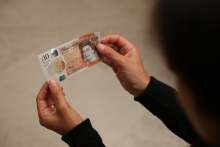The decisions that banks make shape our economies, societies and future. With many UK high street banks falling well short when it comes to ethics, we explore what makes a bank unethical, which banks are the worst offenders and what we can do about it.
What is an unethical bank?
Banks use the money they hold to fund companies and projects around the world – including some of the most environmentally damaging. For example, UK banks are behind the expansion of a coal mine in Colombia, destroying Indigenous towns and causing widespread drought. They are also behind palm oil companies causing massive deforestation in Indonesia.
In funding these projects, they enable abuses of the environment, human and other animal rights. Many banks are also directly involved in dodgy practices from tax avoidance to multi-million pound directors’ pay.
When deciding whether a bank is ethical, you may also want to ask, ‘who is its owner?’ A company may have one ethical brand, while ignoring ethics in every other area of its business.
Each of us will have different ethical priorities, but below we outline some key things you might want to look out for when considering who to bank with.








